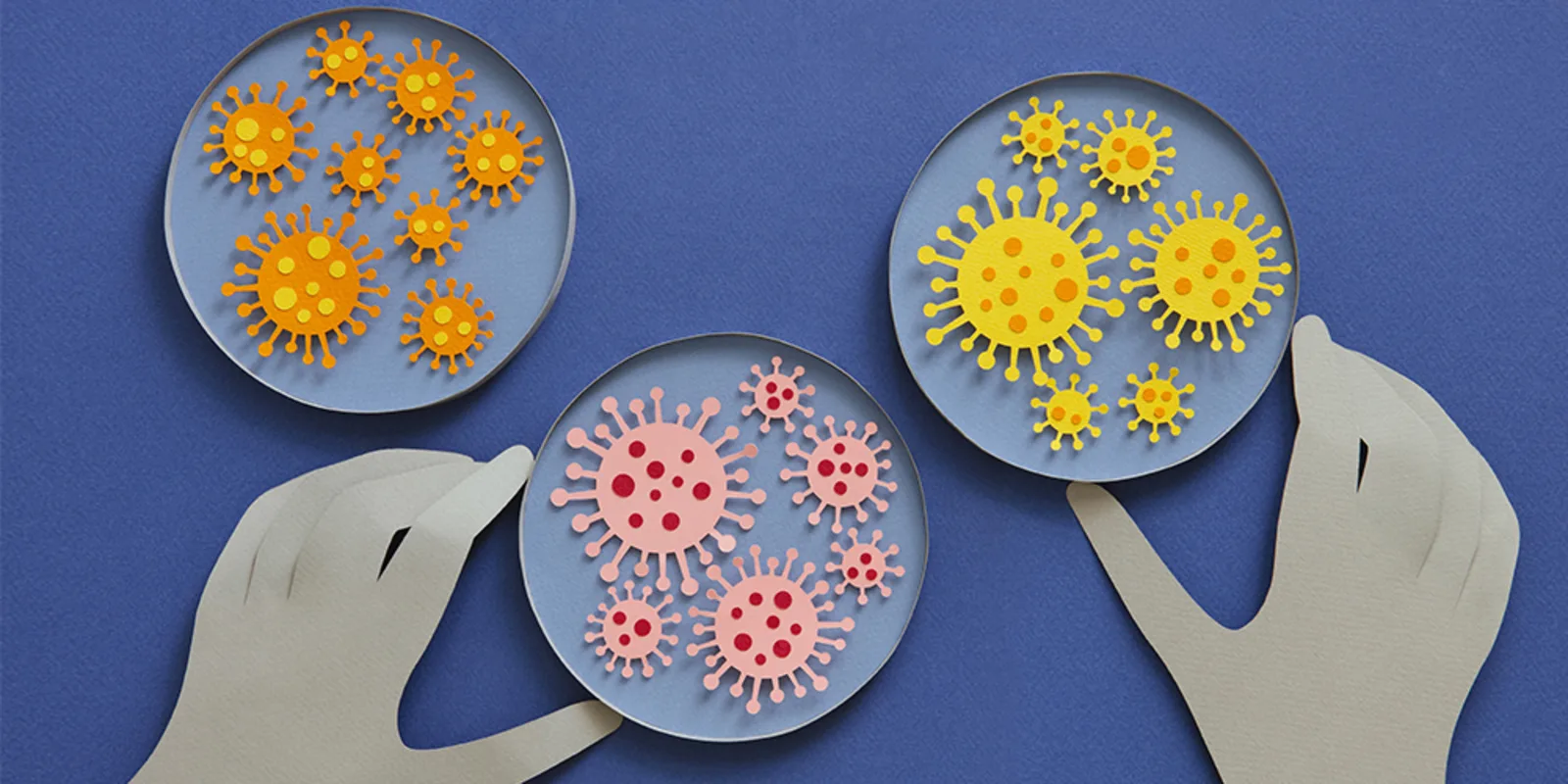Article last updated January 19, 2022
In response to a coronavirus surge precipitated by the Omicron variant, the U.S. administration announced a string of measures that expands access to rapid testing.
The historic undertaking includes making at least a billion COVID-19 tests available to the public at no charge over the next several months. Individuals can order the free, at-home, rapid COVID-19 tests online at COVIDtests.gov, with an initial limit of four tests per home address. A hotline will be available and more outreach and assistance will be provided for communities at higher risk.
Among hundreds of types of COVID-19 diagnostic tests currently available, at least 19 non-prescription, at-home tests have received U.S. FDA emergency use authorization at the time of this writing.
The regularly updated FDA website lists all molecular, antigen, and serology and adaptive immune response diagnostic tests for SARS-CoV-2. The following commercially available tests have been authorized for at-home use:
- Abbott Diagnostics Scarborough, Inc. (BinaxNOW COVID-19 Antigen Self Test; BinaxNOW COVID-19 Ag Card Home Test; BinaxNOW COVID-19 Ag Card 2 Home Test)
- Access Bio, Inc. (CareStart COVID-19 Antigen Home Test)
- ACON Laboratories, Inc (Flowflex COVID-19 Antigen Home Test)
- Becton, Dickinson and Company (BD Veritor At-Home COVID-19 Test)
- Celltrion USA, Inc. (Celltrion DiaTrust COVID-19 Ag Home Test)
- Cue Health, Inc. (Cue COVID-19 Test for Home and Over The Counter Use)
- Detect, Inc. (Detect Covid-19 Test)
- Ellume Limited (Ellume COVID-19 Home Test)
- iHealth Labs, Inc. (iHealth COVID-19 Antigen Rapid fact sheet)
- InBios International Inc. (SCoV-2 Ag Detect Rapid Self-Test)
- Lucira Health, Inc. (Lucira CHECK-IT COVID-19 Test)
- OraSure Technologies, Inc. (InteliSwab COVID-19 Rapid Test; InteliSwab COVID-19 Rapid Test Rx)
- Quidel Corporation (QuickVue At-Home OTC COVID-19 Test; QuickVue At-Home COVID-19 Test)
- SD Biosensor, Inc. (COVID-19 Ag Home Test) (distributed by Roche)
- Siemens Healthineers (CLINITEST Rapid COVID-19 Antigen Self-Test)
Most of the tests are designed for self-collection by individuals 14 to 15 years of age or older within the first six to seven days of symptom onset. Many tests also permit adult collection for children as young as 2 years. While the tests are designed for use at home, proper guidance from health care professionals may help reduce false positives due to user error and help individuals avoid the purchase of unauthorized test kits.
Company-reported performance evaluations of the at-home tests have indicated an average sensitivity hovering in the range of 85% to 98% — i.e., detecting roughly 85% to 98% of infectious cases — and a specificity of nearly 100%. (Several real-world studies have reported a broader range in test sensitivity, from 64% to more than 98%.)
What’s more, recent research has confirmed that some of the rapid tests are effective at detecting the Omicron variant, though a small, pre-print study reported discordant results during the earliest stages of infection for multiple tests.
Access to rapid COVID-19 tests has been scarce for the average American, both online and in stores. And marginalized communities who face challenges with inflexible work schedules, unreliable transportation, language barriers, and disabilities are disproportionately burdened by the national coronavirus testing shortage. With high testing demand causing price gouging and the rise of fake pop-up testing sites in many cities, patients should be encouraged to seek out authorized tests and kits for the safety of their health and personal information.
"We need the testing yesterday, we need those tests available," AMA President Dr. Gerald Harmon said in an ABC News interview. "And that's going to be incredibly important for us to overcome and mitigate the spread of this virus."
In addition to the recent pledge, the HHS is distributing 50 million at-home tests to community health centers and Medicare-certified rural health clinics for free use to patients without private health insurance. Children will soon benefit from increased access to testing at schools, and more broadly, the public will have more access to federal surge free testing sites as well as free high-quality masks. The HHS is also requiring private health insurers to reimburse up to eight at-home COVID-19 tests per month for covered individuals, with no deductibles or cost-sharing.
Collectively, increased access to testing may help stem the flood of patients overcrowding hospital emergency departments in recent weeks. Local health officials in several cities have encouraged people to avoid seeking testing at EDs to preserve resources for true emergencies.
As the country faces what may be the peak of the current Omicron wave, Americans will have an array of testing options and challenges to navigate. Clinicians are integral in improving testing access and can provide patients with evidence-based recommendations and resources.
What COVID-19 testing challenges are you facing in your practice? Share your experiences and solutions in the comments below.






